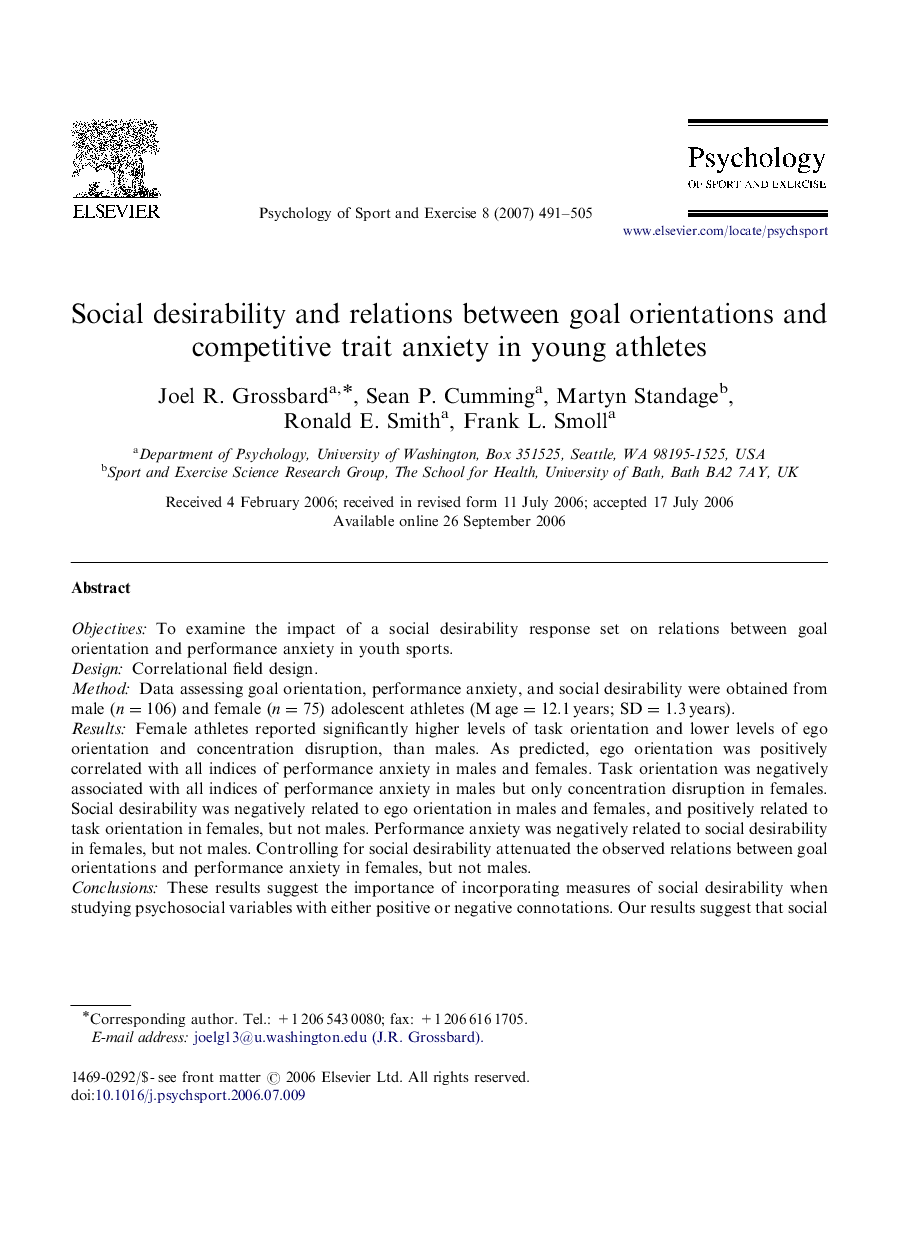| Article ID | Journal | Published Year | Pages | File Type |
|---|---|---|---|---|
| 894905 | Psychology of Sport and Exercise | 2007 | 15 Pages |
ObjectivesTo examine the impact of a social desirability response set on relations between goal orientation and performance anxiety in youth sports.DesignCorrelational field design.MethodData assessing goal orientation, performance anxiety, and social desirability were obtained from male (n=106) and female (n=75) adolescent athletes (M age=12.1 years; SD=1.3 years).ResultsFemale athletes reported significantly higher levels of task orientation and lower levels of ego orientation and concentration disruption, than males. As predicted, ego orientation was positively correlated with all indices of performance anxiety in males and females. Task orientation was negatively associated with all indices of performance anxiety in males but only concentration disruption in females. Social desirability was negatively related to ego orientation in males and females, and positively related to task orientation in females, but not males. Performance anxiety was negatively related to social desirability in females, but not males. Controlling for social desirability attenuated the observed relations between goal orientations and performance anxiety in females, but not males.ConclusionsThese results suggest the importance of incorporating measures of social desirability when studying psychosocial variables with either positive or negative connotations. Our results suggest that social desirability may contribute to relations between goal orientation and anxiety in athletes, particularly females.
